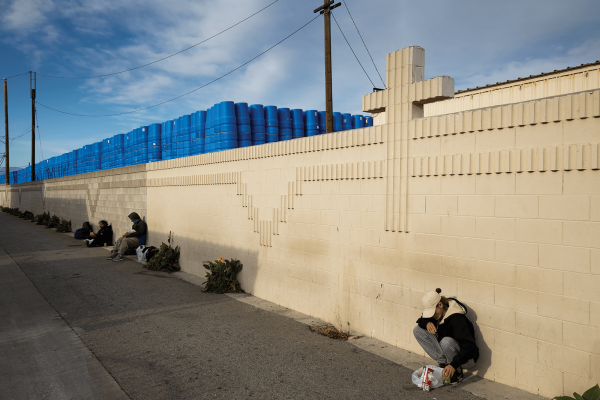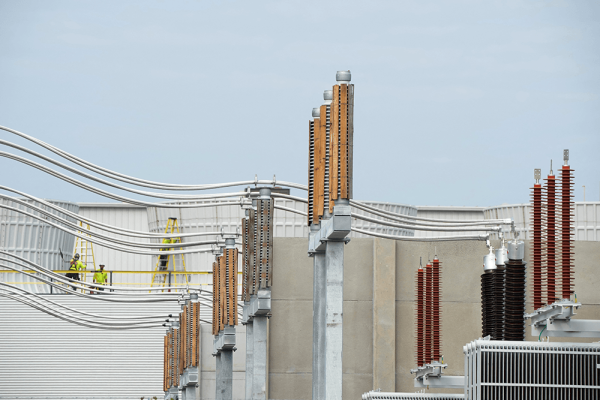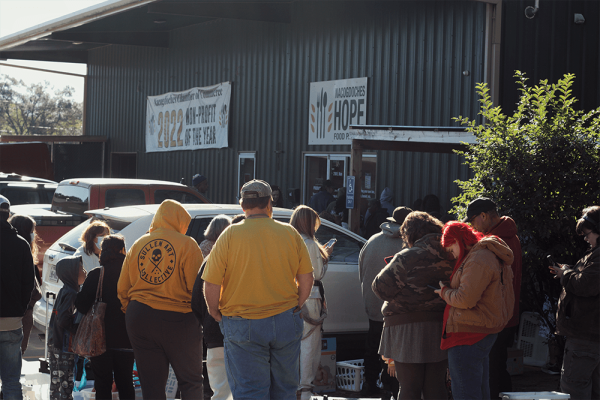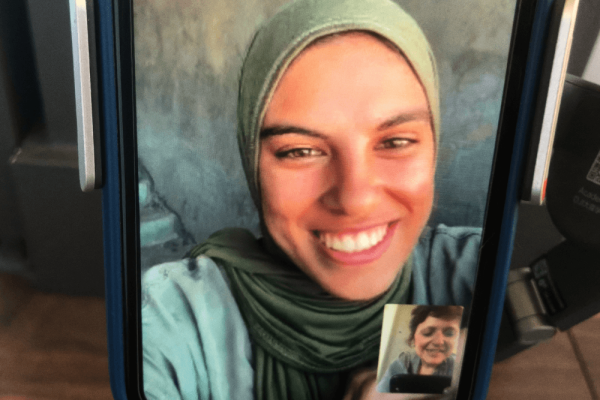“MOST OF OUR volunteers are senior citizens, but in early March we had to ask them not to come. At the same time, phone calls to the church were increasing: ‘Is your food pantry still happening?’ We didn’t know what we were going to do, so we put it out on Instagram to the community, like, ‘Hey, we need volunteers, and if you’re not immunocompromised, please consider coming out and helping.’ And we had a great response.
We’ve served record numbers of people at our food pantry, and our volunteer base is not from the church; it’s young hipsters, real estate agents, and people who are themselves food insecure but are wanting to pay it forward. We can’t give out hot meals anymore, because if we do, people naturally gather and congregate. The whole thing has become a lot less personal. While we’re serving a lot of people, there’s not as much laughter.
We have one unhoused transgender individual who recently started attending church services and Bible studies; they said over and over again how much a welcoming community was doing for their mental and physical health. I’ve been texting regularly with this person, who has an autoimmune disease and is now in quarantine at a big rescue mission in downtown Los Angeles. It’s suspected they’re going to test positive for the coronavirus. The worst part about this for them is not the pain of the sickness that they’re going through, it’s a loss of community and a feeling of aloneness, isolation.”
Kyle Joachim spoke with Sojourners senior associate editor Betsy Shirley about how coronavirus has affected the homeless ministry his church offers in partnership with SELAH Neighborhood Homeless Coalition (selahnhc.org).

Got something to say about what you're reading? We value your feedback!






